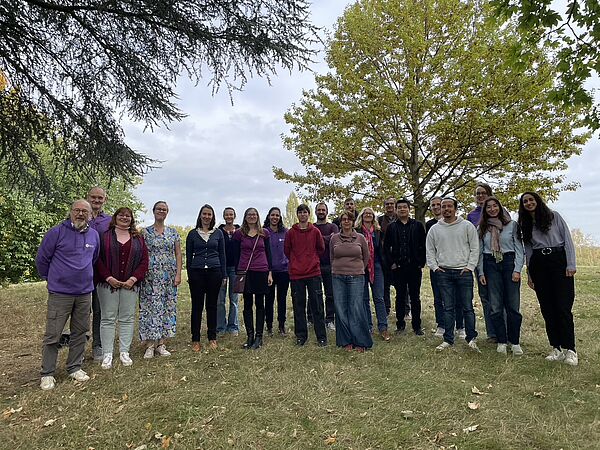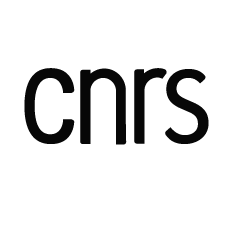Team Language

Coordinators : Angèle Brunellière (Pr, ULille) & Sandrine Mejias (MCF, ULille)
Researchers : Anahita Basirat (Pr, ULille), Angèle Brunellière (Pr, ULille), Séverine Casalis (Pr, ULille), Bruno Facon (Pr, ULille), Ludivine Javourey-Drevet (MCF, INSPE ULille), Dominique Knutsen (MCF, ULille), Andreas Lazartigues (MCF, ULille), Gwendoline Mahé (MCF, ULille), Sandrine Mejias (MCF, ULille), Svetlana Pinet (MCF, ULille), Laurent Sparrow (MCF, ULille)
PhD Student : Sabah Al Bilani, Layla Berbain, Zalfa Chamoun, Alicia Fasquel, Anaelle Filisetti, Jules Fumel, Mélen Guillaume, Angelica Gutierrez, Clémence Liffran, Laura Marchesini, Junior Vargas, Ding Yan
Co-supervising PhD Students with another laboratory: Vincent Bovet (Université Neufchâtel), Mareva Brunet (FoReLLIS UR 15076, Université de Poitiers)
Research support staff: Antoine Petit (resp. A. Basirat), Sylvain Haudegond (resp. L. Sparrow)
Post-doctorant: Matthieu Bignon, Guillaume Chevet (resp. S. Casalis)
ATER: Aikaterini PREMETI 1 an à 100%
Coordinators: Angèle Brunellière & Sandrine Mejias
The Language team aims to characterize the cognitive and neurocognitive processes associated with language learning and processing drawing on a foundation of theoretical knowledge derived from cognitive psychology and neuroscience.
It adopts an integrative approach to language, taking into account the diversity of linguistic information (orthographic, phonological, morphosyntactic, semantic, pragmatic) and language processing (perception, recognition, comprehension, production, dialogue, memory integration), as well as interactions with other cognitive systems and non-linguistic information (e.g., in the field of numerical cognition). To this end, we develop four research themes.
Presentation Team Language
Themes of study
What are the links between spoken and written language? What are the predictive factors in reading acquisition and comprehension? What role do spelling and executive functions play in learning to read in a multilingual context? What are the links between non-linguistic abilities (error detection, visual attention span) and learning to read?
People involved: Layla Berbain, Matthieu Bignon, Séverine Casalis, Guillaume Chevet, Zalfa Chamoun, Ludivine Javourey-Drevet, Andreas Lazartigues, Gwendoline Mahé, Aikaterini Premeti, Laurent Sparrow, Luc Virlet
What are the links between non-linguistic and linguistic processing in the development of arithmetic skills? What mechanisms are involved in number processing? How do statistical regularities (transitional probabilities, frequency, etc.) contribute to language processing in adults? How do regularities contribute to the organization and development of semantic memory?
People involved : Anahita Basirat, Angèle Brunellière, Andreas Lazartigues, Sandrine Mejias
How do we learn new words in native language and second language? What are the links between spoken and written language? How are new word forms or new meanings integrated into memory after social interaction? What is the role of memory in shared knowledge in dialogue?
People involved: Sabah Al Bilani, Angèle Brunellière, Séverine Casalis, Ludivine Javourey-Drevet, Dominique Knutsen, Svetlana Pinet, Junior Vargas, Ding Yan
What is the link between speech perception and production and their connection to rhythmic information? What are the links between speech production and written production? What neurocognitive processes are involved in understanding meaning and taking the interlocutor into account? What is the impact of social interaction on the development of new language skills? What are the cues that guide collaboration between individuals in dialogue?
People involved: Anahita Basirat, Angèle Brunellière, Bruno Facon, Anaelle Filisetti, Jules Fumel, Mélen Guillaume, Angelica Gutierrez, Dominique Knutsen, Clémence Liffran, Svetlana Pinet
The Language team also develops projects with a strong socioeconomic impact on healthcare (e.g., determinants of access to speech therapy for children and adolescents with intellectual disabilities) and prevention and remediation initiatives (e.g., accessible and practical assessment tools for screening language or math learning difficulties or evaluating programs for clinical and educational applications) in partnership with educational institutions (INSPE, school boards, schools) and companies (Corneille, EPIC, IOL, QUIMESIS, Neotrope, ISI). The studies conducted by the Language team thus cover a wide range of populations, from children to adults with or without disorders (e.g., dyslexia, Alzheimer's disease, Parkinson's disease), in typical aging situations or in specific populations (intellectual disability, disadvantaged situations) and in the case of multilingualism.
